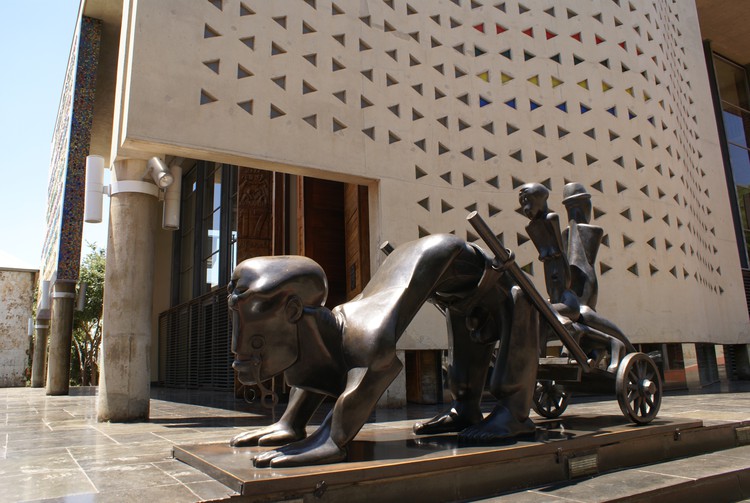

A landmark ruling by the Western Cape High Court which declared part of the Regulation of Gatherings Act unconstitutional is to be challenged by the state and the Minister of Police in the Constitutional Court. Photo: Ciaran Ryan
22 February 2018
A landmark ruling by the Western Cape High Court last month, which declared part of the Regulation of Gatherings Act unconstitutional, is to be challenged by the State and the Minister of Police in the Constitutional Court.
On 24 January, Judge Thandazwa Ndita ruled that the section of Regulation of Gatherings Act 205 of 1993, which criminalises the gathering of more than 15 people if no notice is given, was invalid and unconstitutional.
The case was brought by the Social Justice Coalition (SJC) against the state and the Minister of Police. Equal Education, the Open Society Justice Initiative, and The UN Special Rapporteur were admitted as friends of the court.
In September 2013, 21 members and supporters of the SJC were arrested and charged with contravening the Regulation of Gatherings Act (RGA). They had chained themselves to the railing of the Civic Centre in Cape Town, demanding to see Mayor Patricia de Lille.
In February 2015, ten members of the group, identified as the conveners of the protest, were convicted under the Act for not submitting a notice for their protest to the City. The remaining 11 were acquitted.
The SJC appealed the convictions in 2016. One of the convicted SJC members, Nolulama Jara, died in August 2015, but Jara’s name is still listed in the court documents.
In her ruling, Ndita set aside the convictions of ten SJC members. She said the criminal sanction in the Act was “disproportionate to the offence”.
In the papers submitted on 13 February, the Minister of Police said that Ndita’s order could only come into effect once it has been confirmed by the Constitutional Court.
The Minister maintains that the Act does not limit or infringe on the right to freedom of assembly, that giving notice was a “simple and straightforward procedure”, and that it ensured protest “takes place peacefully and with due regard to the rights of others”.
The Minister said notice allows the state to adequately prepare and facilitate the right to protest, and makes the deployment of police easier “in light of the scarcity of police resources”.
Axolile Notywala of the SJC told GroundUp that the organisation had also approached the Constitutional Court to have Ndita’s decision upheld. “We are still waiting for a directive from the Court.”
Should Ndita’s ruling be upheld by the Constitutional Court, it will have important implications for civil society activists, poor communities and other citizens engaged in protest action against the state or powerful private organisations.